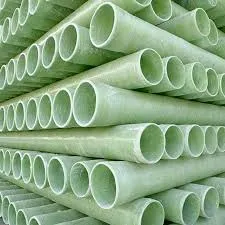Corrosion Resistant Fiberglass - Durable and Reliable Solutions
Corrosion Resistant Fiberglass An Essential Material for Modern Industries
In the contemporary world, industries are increasingly seeking materials that can withstand harsh environments and provide longevity. One such material that has gained widespread attention is corrosion resistant fiberglass. Known for its unique properties, this composite material has become the go-to choice for a variety of applications across several sectors, including chemical processing, marine, and construction.
Corrosion is a significant challenge that many industries face, particularly those that deal with harsh chemicals, saltwater, or extreme environmental conditions. Metals, while strong and durable, often succumb to corrosion over time, leading to structural failures and costly repairs. In contrast, fiberglass, which is made from reinforced plastic and embedded with glass fibers, exhibits superior resistance to corrosion, making it an ideal alternative for environments where traditional materials fail.
One of the primary advantages of corrosion resistant fiberglass is its inherent resistance to a wide range of chemicals. Unlike metals that can react with acids, bases, and salts, fiberglass remains stable when exposed to these substances. This chemical resistance makes it particularly valuable in the chemical processing industry, where equipment must maintain integrity while handling volatile substances. Storage tanks, piping, and vessels made from fiberglass can endure aggressive environments without deteriorating, ensuring safety and reliability.
corrosion resistant fiberglass

Moreover, fiberglass is considerably lighter than metals, which translates to easier handling and installation. This lightweight nature also contributes to reduced transportation costs and lower structural support requirements. In industries such as construction and marine, where weight is a critical factor, fiberglass offers a significant advantage without compromising strength or durability.
Another key benefit of corrosion resistant fiberglass is its resistance to environmental factors such as moisture, UV radiation, and extreme temperatures. This makes it an excellent choice for outdoor applications, where exposure to the elements can lead to rapid degradation. For instance, in the marine industry, fiberglass is commonly used for boat hulls, as it can withstand prolonged exposure to saltwater without corroding.
The versatility of fiberglass also extends to its manufacturability. It can be molded into complex shapes and sizes, allowing for innovative designs that traditional materials cannot achieve. This adaptability has led to its use in a wide variety of products, from infrastructure components to consumer goods.
In conclusion, corrosion resistant fiberglass is a remarkable material that meets the demands of modern industries facing the threat of corrosion. Its chemical resistance, lightweight nature, environmental durability, and versatility make it an attractive option for myriad applications. As industries continue to evolve and face new challenges, the adoption of advanced materials like corrosion resistant fiberglass will undoubtedly play a key role in ensuring efficiency, safety, and sustainability. As we look toward the future, it is clear that this innovative composite will remain at the forefront of material science and engineering.
Latest news
-
Oblate Tanks: Space-Saving, Durable Liquid Storage SolutionsNewsAug.27,2025
-
High-Performance Piping System Solutions for Industry & Commercial UseNewsAug.26,2025
-
Precision Fittings: Durable & Reliable Industrial & Plumbing SolutionsNewsAug.25,2025
-
Practical Steps: Unlock Success with Our Proven GuidesNewsAug.24,2025
-
Transport Tanks: Safe, Durable & Efficient Liquid HaulingNewsAug.23,2025
-
High-Quality Piping Systems for Efficient Flow & DurabilityNewsAug.22,2025











